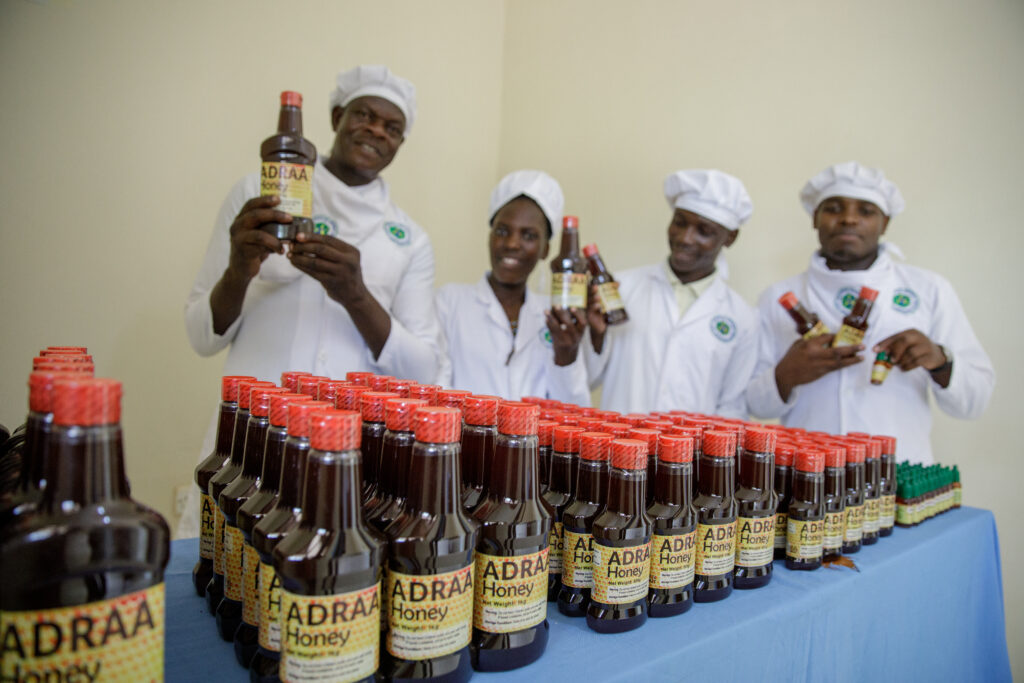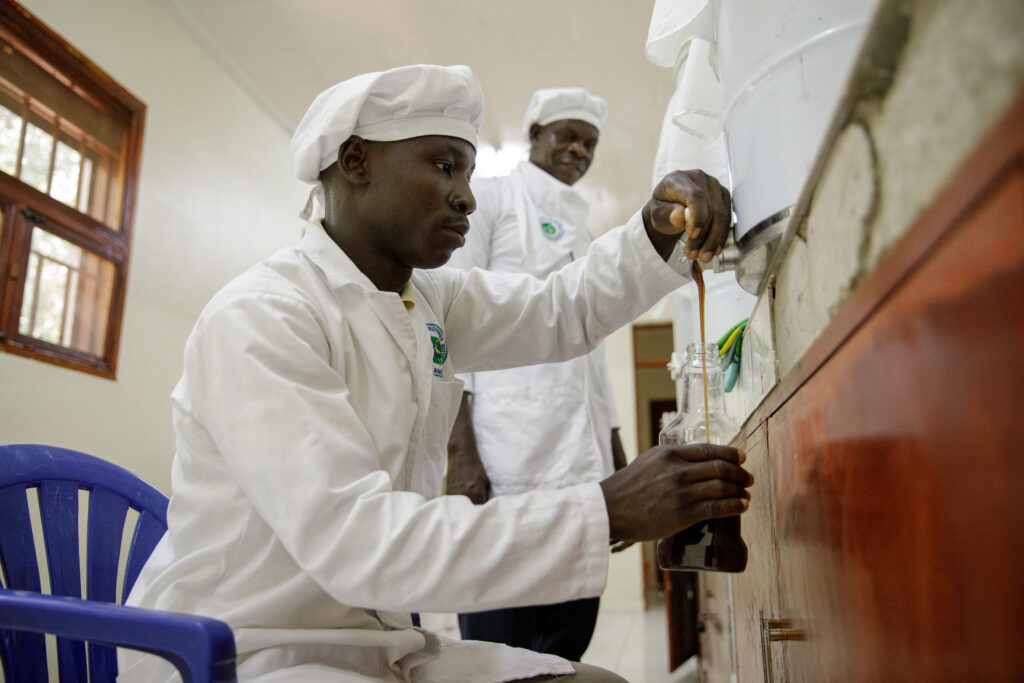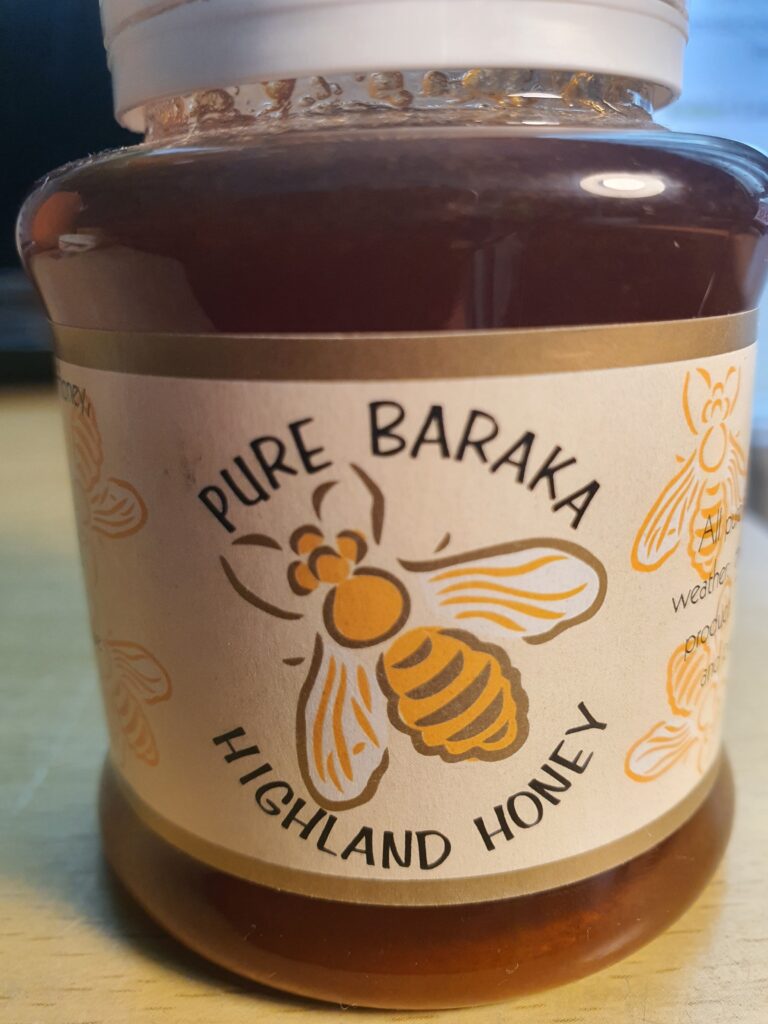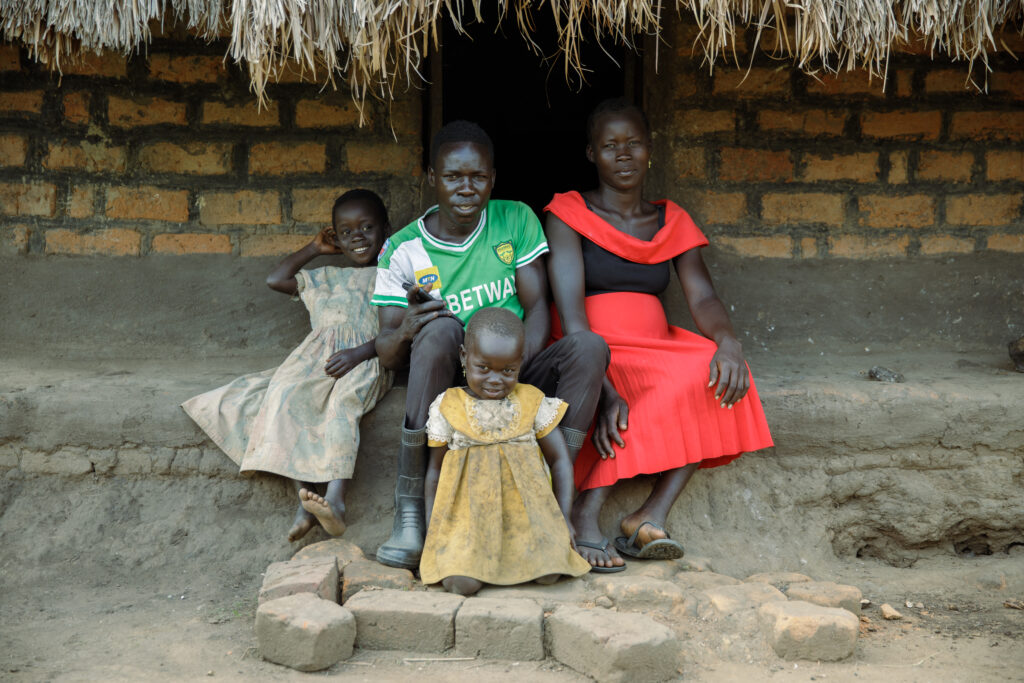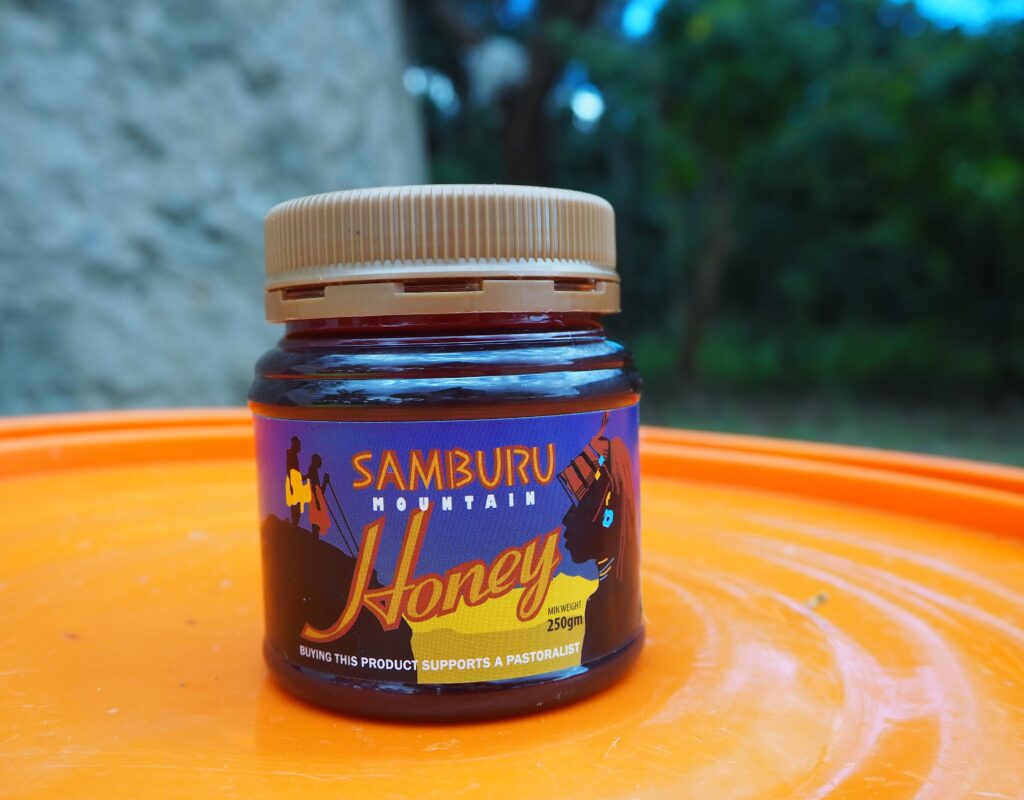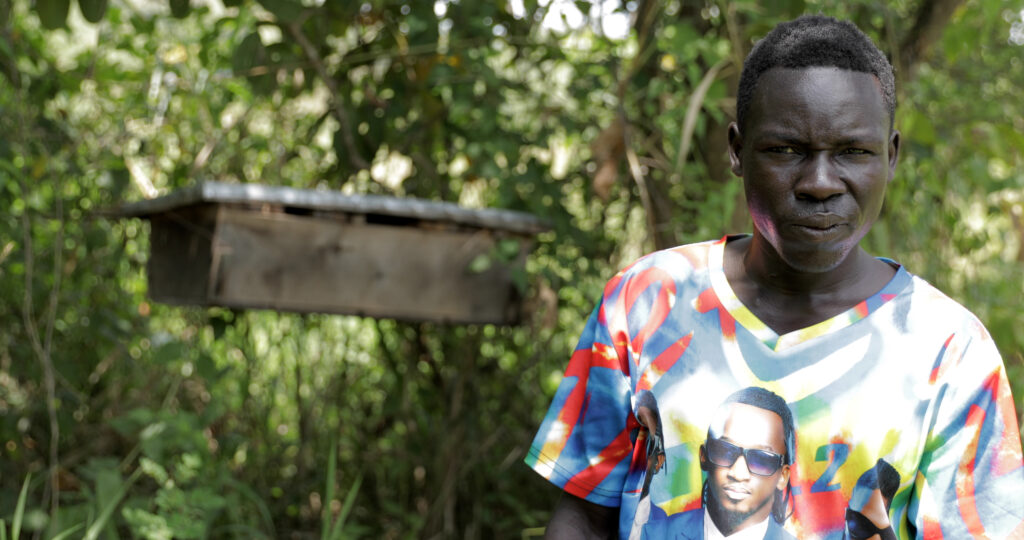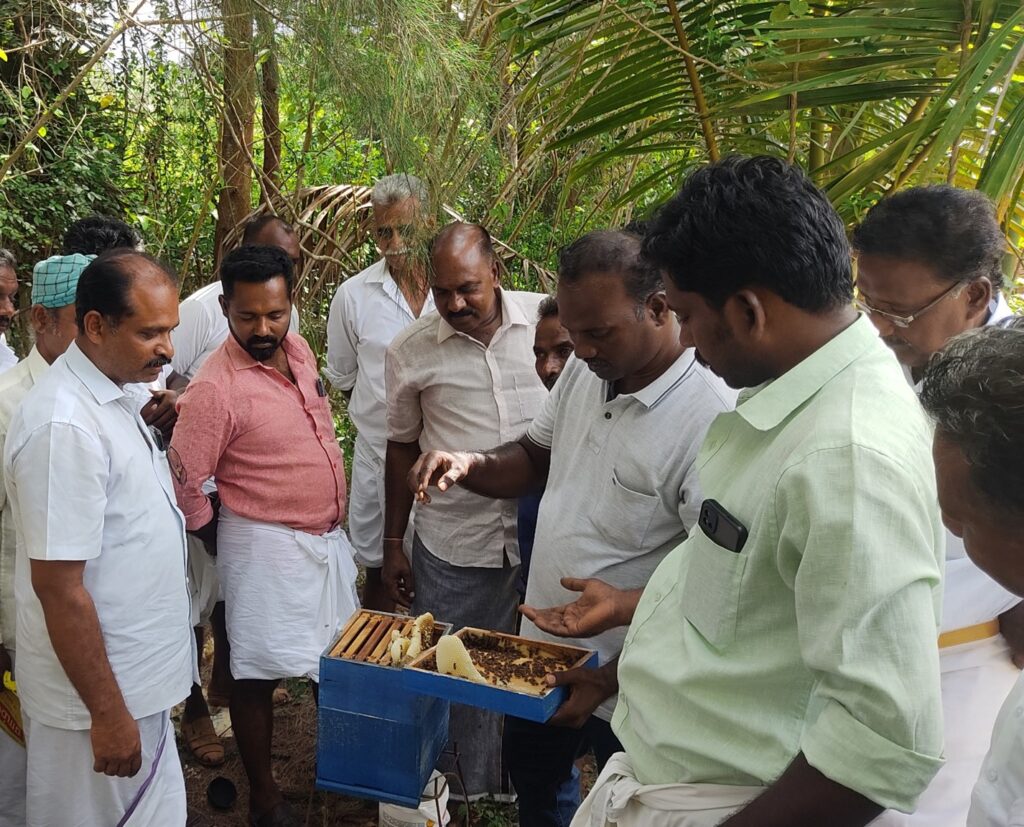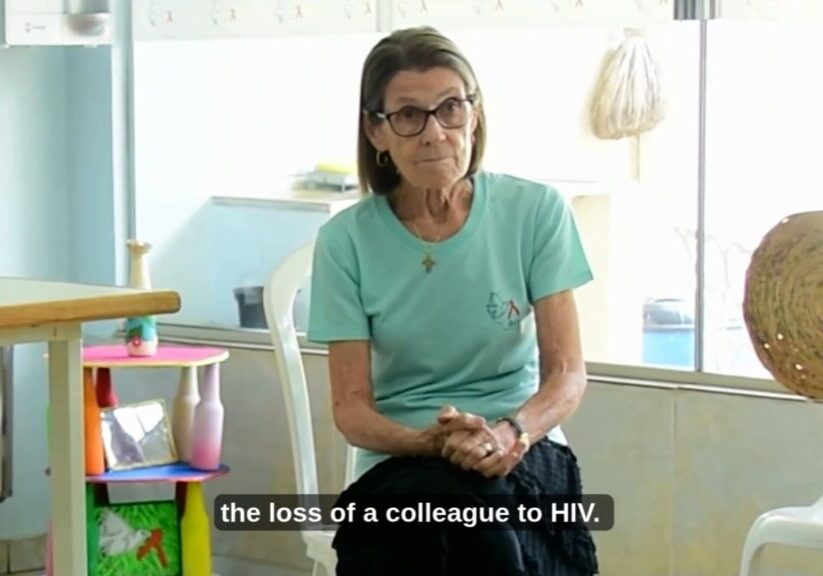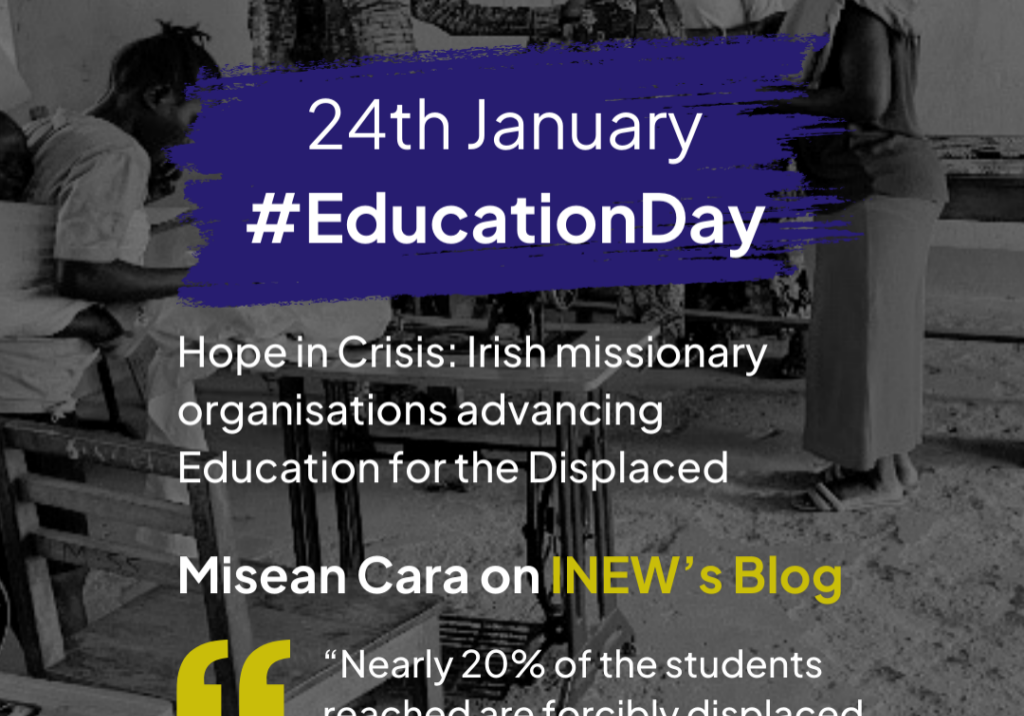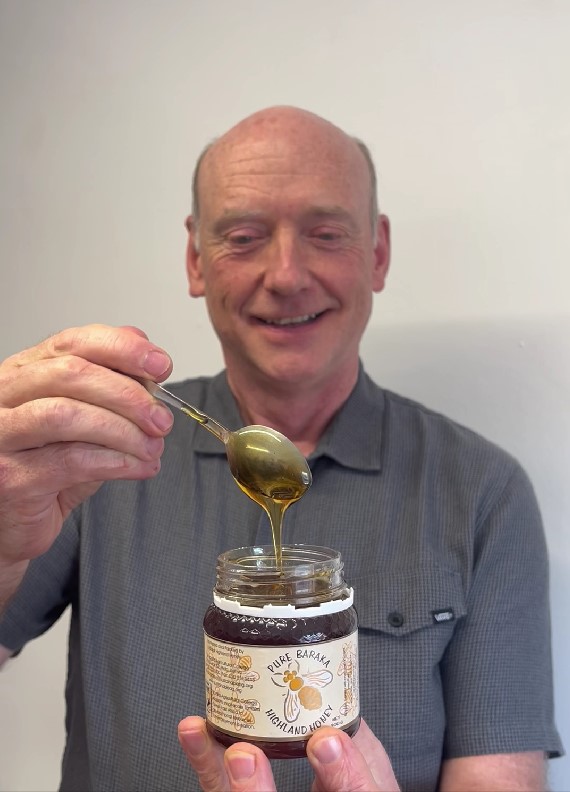
Tom Carroll
Misean Cara Project Officer
Bee Inspired by Nature to Nourish Us All – Reflections on World Bee Day 2025
By Tom Carroll, Beekeeper and Project Officer, Misean Cara
Since the age of nine, I’ve been a beekeeper. What began as a childhood curiosity quickly grew into a lifelong passion – one that eventually brought me to Baraka Agricultural College in Kenya, where I worked for over a decade alongside the Franciscan Brothers, leading the beekeeping programme. I’ve seen firsthand how beekeeping, when paired with strong community training and environmental stewardship, can transform livelihoods and landscapes alike.
As we mark World Bee Day 2025 under the theme “Bee inspired by nature to nourish us all”, I’m struck by both the essential contributions of pollinators to our food systems – and the growing threats they face.
Bees – Unsung Heroes of Global Agriculture
Pollinators like bees are unsung heroes of global agriculture. More than 75% of the world’s food crops, including fruits, vegetables, nuts, and seeds, rely on pollination. Beyond yields, pollinators enhance nutritional diversity and food quality, playing a vital role in nourishing the planet — especially in communities where access to diverse, nutritious foods is limited.
Yet many of the rural communities most dependent on pollinator-supported crops are also on the frontlines of environmental decline. Since my early days as a young beekeeper, I’ve witnessed a gradual but unsettling change. In my own garden here in Ireland, for example, the apple trees that once came alive each spring with the hum of honeybees and bumblebees now stand noticeably quieter. This silence isn’t just a personal observation — it reflects a global pattern. Data from around the world point to a sharp decline in pollinators, driven by habitat loss, intensive agriculture, pesticide use, pollution, and the escalating impacts of climate change.
But bees are not just about food — they’re also about hope and opportunity. In the drylands of Kenya, Ethiopia, and other parts of East Africa and beyond, where conventional agriculture often struggles, beekeeping provides one of the few viable livelihood options. It requires little land, works in harmony with local ecosystems, and generates income through honey, wax, propolis (a resin-like substance collected by bees from tree buds and used to seal and sterilise their hives), and value-added products like candles and creams.
Beekeeping as Environmental Action
From my experience, teaching people to keep bees often inspires broader environmental action. Beekeepers begin to value – and protect – trees, including indigenous species such as the beautiful acacia trees, which provide vital forage for bees and support fragile ecosystems. They plant flowering shrubs and bee fodder trees like Grevillea, Calliandra, or Croton megalocarpus to ensure year-round nectar sources. In regions where tree-cutting and the scourge of charcoal burning—often a last resort in areas with few sustainable income sources—have devastated landscapes, beekeeping offers a compelling alternative: one that encourages tree preservation over destruction. Over time, beekeepers become stewards of biodiversity, understanding that their bees – and by extension, their livelihoods – depend on healthy, flowering environments. Beekeeping, in this context, becomes a quiet force for regeneration and climate resilience.
Faith-based Sustainable Agriculture – Aligning with Laudato Si’
At Misean Cara, we know that development is not sustainable unless it includes the environment. Through our member organisations, we’ve seen how faith-based approaches to agriculture and conservation do more than deliver technical solutions — they draw on deep-rooted values of care, solidarity, and justice. By accompanying communities over the long term, missionaries help build climate resilience, restore ecosystems, and strengthen the social fabric. These approaches foster not just improved livelihoods, but a sense of human dignity, purpose, and shared responsibility for creation.
This kind of transformation doesn’t come from quick fixes or short-term interventions. It comes from accompaniment – walking with communities over time, listening, building trust, and nurturing local capacity. This is the missionary approach to development: long-term presence, deep relationships, and a commitment to integral human development.
This vision aligns deeply with Laudato Si’, Pope Francis’ encyclical on care for our common home. His encyclical reminds us that everything is interconnected — that environmental degradation and poverty are part of the same crisis. In the spirit of Laudato Si’, beekeeping becomes more than an economic activity; it is a way of living out ecological conversion, restoring right relationships with nature, neighbours, and future generations.
“All of us can cooperate as instruments of God for the care of creation.” (Laudato Si’, §14)
What You Can Do This World Bee Day
This World Bee Day, let’s not only celebrate bees but commit to protecting them. That means:
- Buying local, ethical honey and bee products to support smallholder beekeepers;
- Participating in community beekeeping events or school programmes that raise awareness;
- Planting bee-friendly trees and flowers, especially native species that bloom at different times of the year;
- Advocating for sustainable farming practices that reduce pesticide use and protect pollinator habitats;
- Donating to or volunteering with organisations that train new beekeepers and restore degraded environments.
Because when we protect bees, we nourish more than crops – we nourish communities, ecosystems, and hope for future generations.
Misean Cara proudly supports the beekeeping initiatives of many of our members around the world who incorporate it into their sustainable livelihoods projects.
